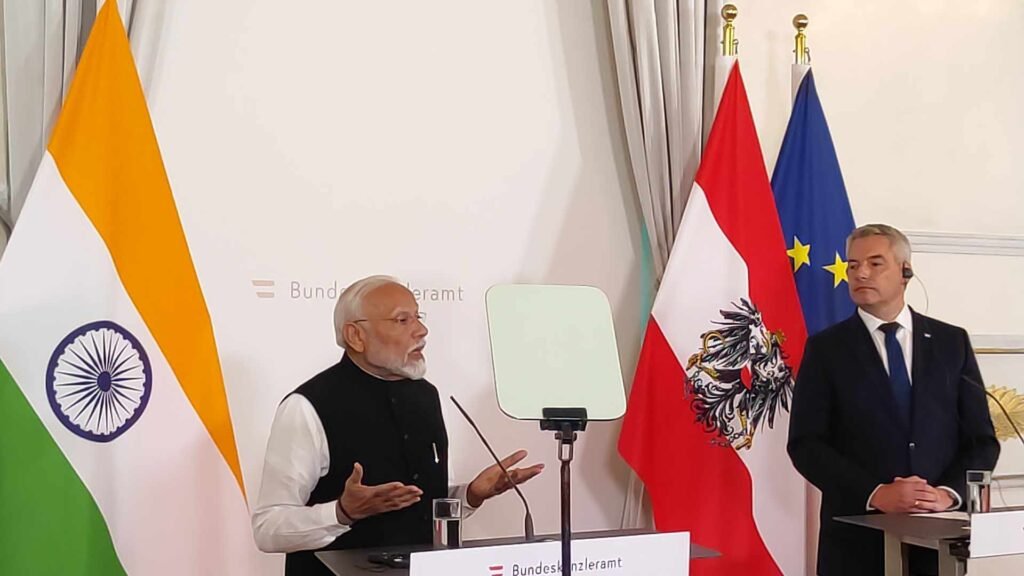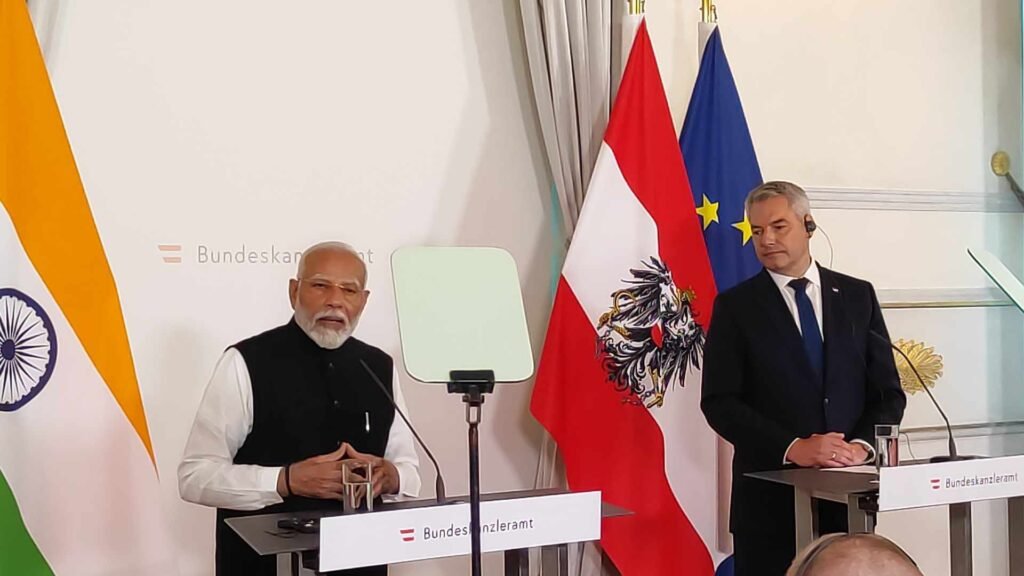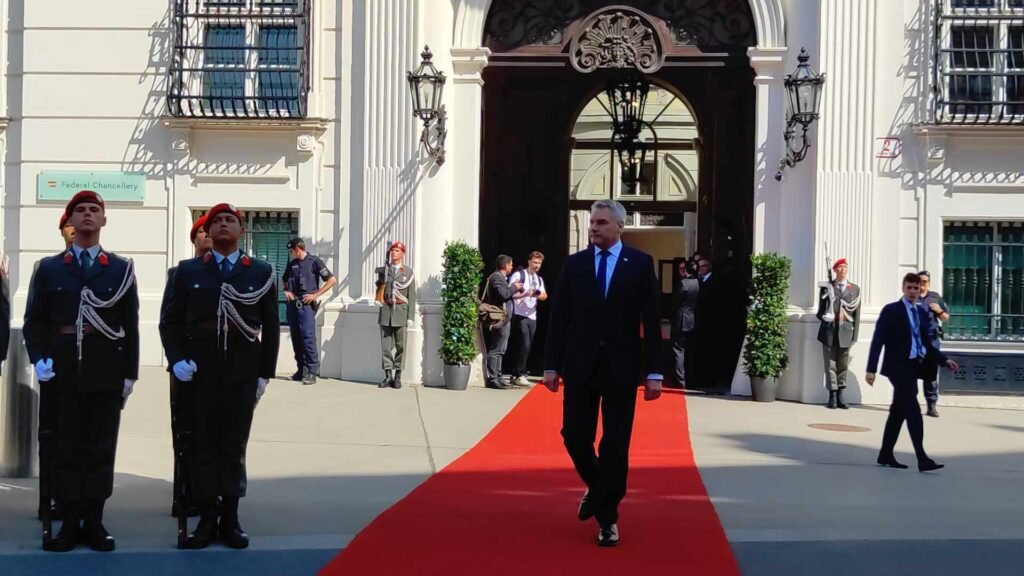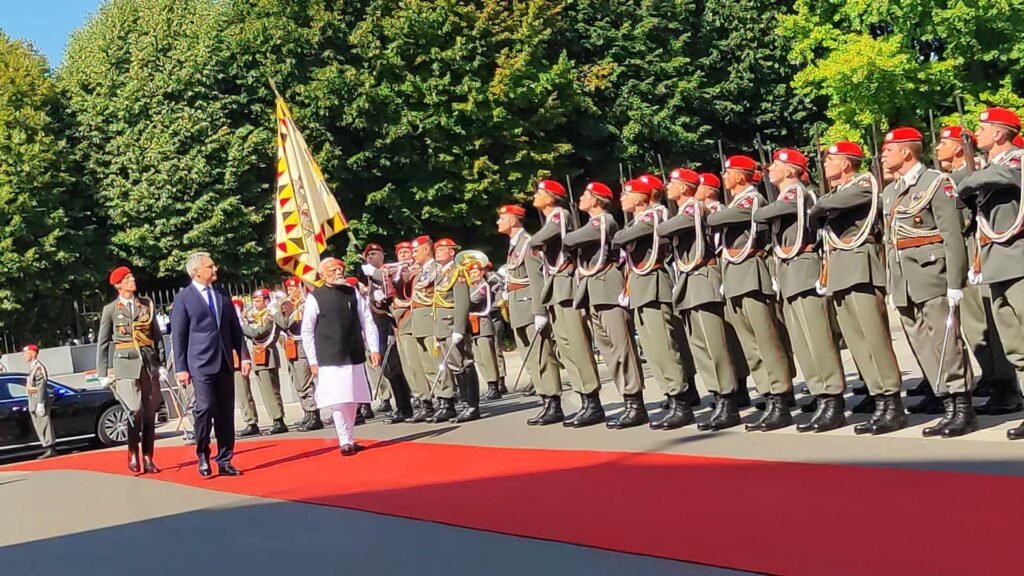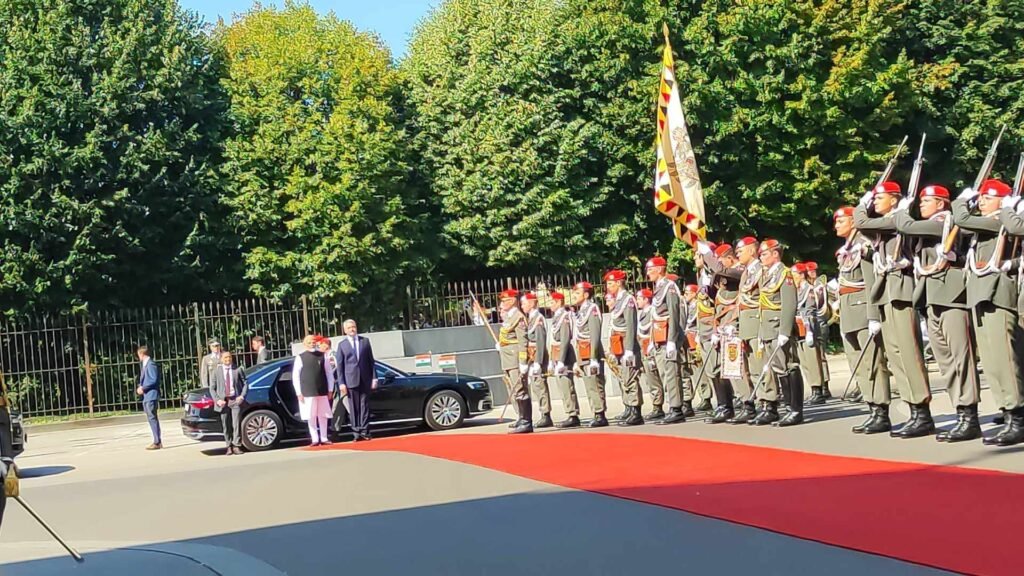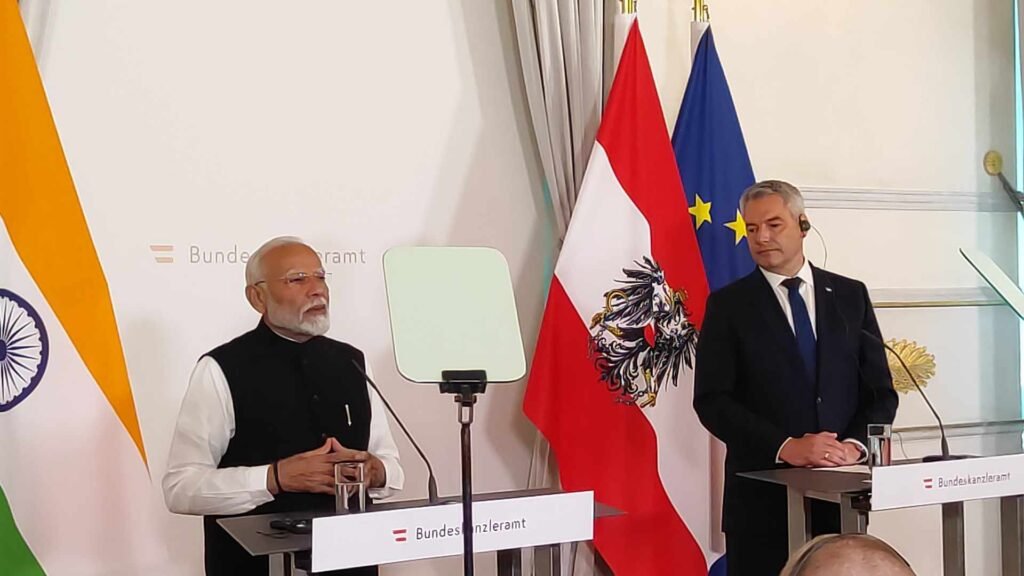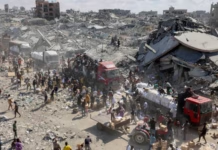Indian Prime Minister Narendra Modi to Vienna on Wednesday arrived and was specially welcomed by Federal Chancellor Karl Nehammer (ÖVP). The ostensible reason for Modi’s visit is the 75th anniversary of the establishment of diplomatic relations between Austria and India in 1949. In 1955, Indian Prime Minister Jawaharlal Nehru visited Austria, and in 1983 his daughter and successor Indira Gandhi visited before she was shot dead by two of her bodyguards the following year. The police are warning of traffic disruptions in Vienna’s city center around the time of the visit; bans have been imposed in some areas. In the Press conference Nehammer said after the working meeting with Modi that he had explored possibilities to initiate a process towards a “fair” and “lasting peace in accordance with the UN Charter”. The Hindu nationalist Modi, who has been in office for ten years, landed at Vienna-Schwechat airport on Tuesday evening from Moscow. Modi was welcomed with military honours on the Ballhausplatz in Vienna in the morning. It is the first visit by an Indian head of government in 41 years.In Russia, Modi met with the ruler Vladimir Putin. He has good personal relations with him, but at the same time strives to maintain equidistance from the West. Since the beginning of the war in Ukraine, India has been increasingly importing cheap oil from the Russian Federation. Modi described Putin on Tuesday as a “dear friend”. At the same time, he criticized military conflicts in general terms. His trips to Russia and Austria are the first since the beginning of his third term as prime minister. During the joint press statements with Nehammer in Vienna, Modi reiterated what he had said during his visit to Russia: “Problems cannot be solved on the battlefield. The loss of innocent lives is unacceptable,” the Indian head of government said, calling for dialogue. Austria and India provided their support for this.Nehammer also offered Austria – as “part of the EU” but “not part of a military alliance” – as a partner and place for dialogue to end the “Russian war of aggression against Ukraine”. He wants a “free and prosperous Ukraine”, said the Chancellor. In addition to the meeting with Nehammer, Modi’s visit program also includes an Indian-Austrian economic forum in the Hofburg. He will also be received there by Federal President Alexander Van der Bellen in the afternoon. The second major topic between the heads of government was bilateral cooperation in the economy and science, which is to be intensified. As a result of his visit, Modi announced that India and Austria are entering into a “start-up partnership”. In addition, a comprehensive ten-year roadmap for joint cooperation is being drawn up. Indian Prime Minister Narendra Modi after the press conference with Federal Chancellor Karl Nehammer (ÖVP) left the press conference without answering the Journalist. Due to which a lot of journalists anger was seen in the journalist community. With 1.4 billion people, India is the most populous country in the world. The 73-year-old state guest is accompanied by a delegation of around 120 people, including his foreign minister Subrahmanyam Jaishankar, advisors and business representatives. With a bilateral trade volume of around 2.7 billion euros in 2023, India is one of Austria’s most important trading partners outside the EU, according to the Federal Chancellery. The Federal Government and the Chamber of Commerce (WKO) see further potential and hope for an increase in trade volume around the economic forum. The head of the Federation of Austrian Industries (IV) and industrialist Georg Knill spoke in advance of India as a “growth market par excellence”.So far, Austria has mainly exported machinery and automotive goods to India. Processed goods such as leather and paper have also proven to be in demand. In order to achieve climate targets, the Indian energy sector is booming and, according to IV, offers opportunities such as “smart city projects”. Skilled workers from India are also of interest to Austrian companies. A free trade agreement between India and the European Union has been negotiated, but has not yet been implemented.
